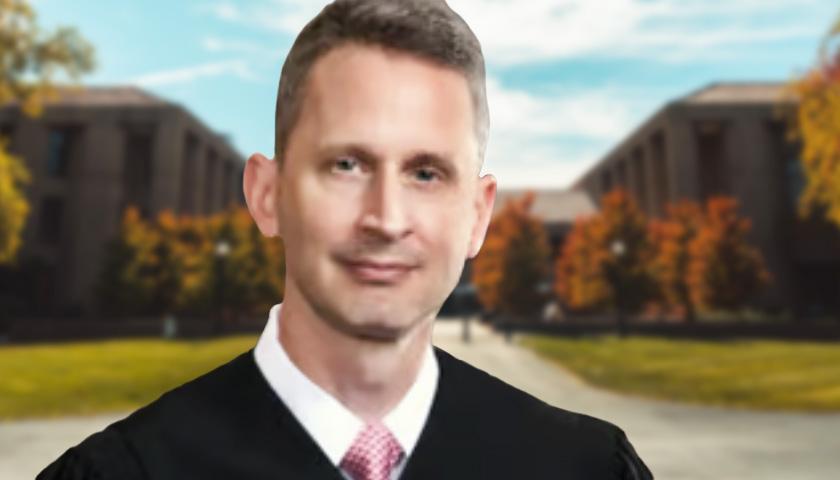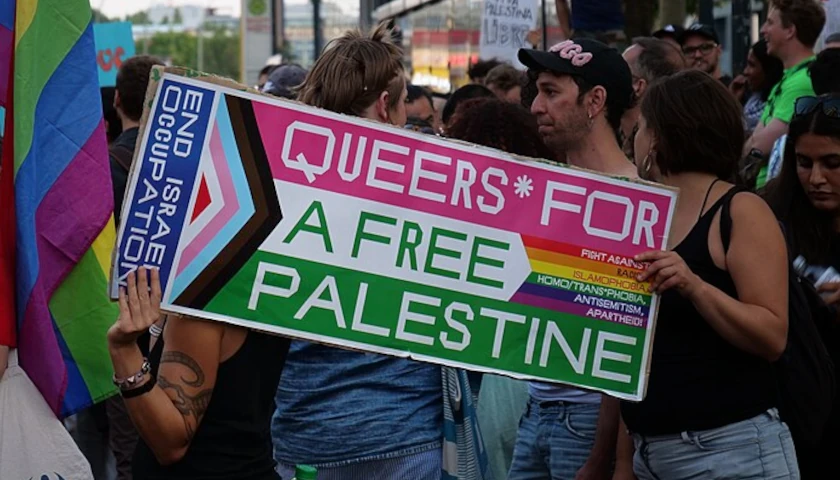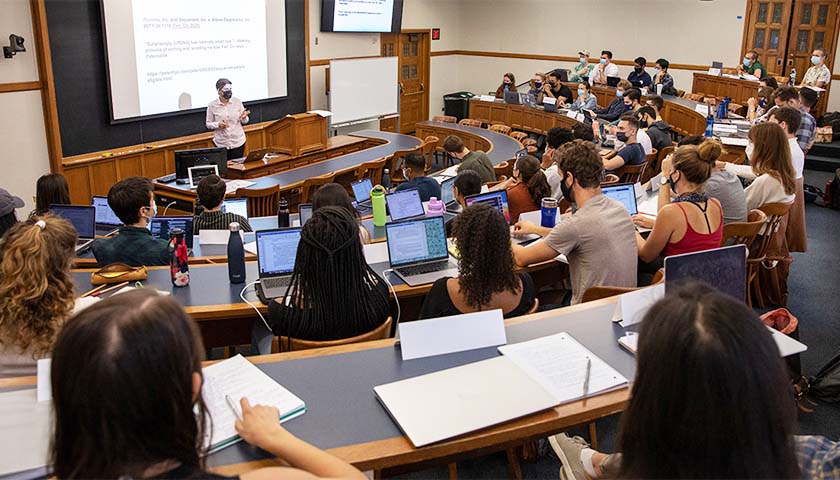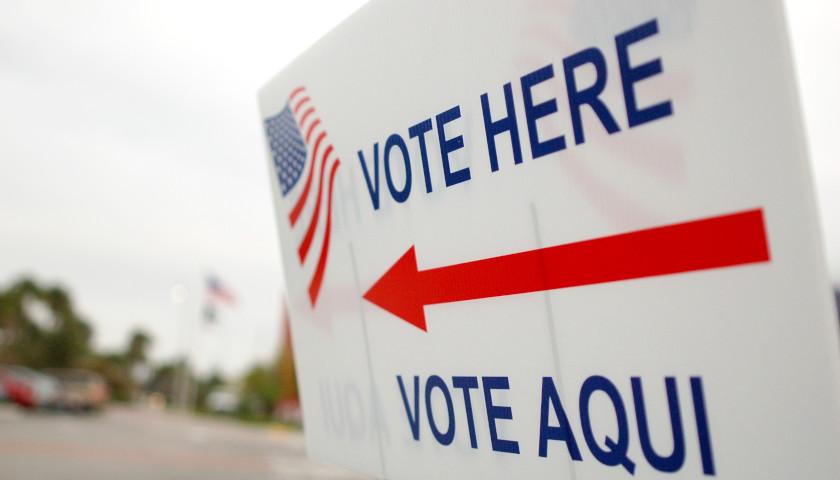by Greg Piper
Scrutiny of Stanford Law School is growing after it refused to discipline students for repeatedly disrupting a conservative federal appeals court judge and even pledged to prevent judges from identifying them by blurring their faces from a video it was paid to make.
House Education Committee Republicans asked the American Bar Association (ABA) in a Friday letter to investigate whether the school was out of compliance with ABA accreditation conditions based on its treatment of 5th U.S. Circuit Court of Appeals Judge Kyle Duncan.
A high-profile legal scholar who faced similar sustained heckling last year from students at the University of California College of the Law, Ilya Shapiro, joined George Washington University Law School’s John Banzhaf in criticizing Stanford Law for giving a pass to the heckler’s veto.
Both have also called for bar admissions complaints to be filed against the students who shouted down and hurled crude slurs at Judge Duncan, allegedly including “We hope your daughters get raped!”
Required first-year courses for Stanford Law students may help explain their illiberal attitudes and apparent unfamiliarity with the First Amendment, according to Hans von Spakovsky, a former Justice Department official who perused the curriculum.
The school is at risk of suffering a judicial boycott similar to that against Yale Law for refusing to punish students who also tried to shut down a Federalist Society event featuring a conservative speaker.
Fourteen judges are known to have joined a boycott of Yale Law clerks started by Duncan’s 5th Circuit colleague James Ho, most recently the 11th Circuit’s Elizabeth Branch, according to tracking of public statements by National Review.
Ho and Branch wrote in NR last month that law schools must “at minimum” identify students who repeatedly disrupt speakers “so that future employers know who they are hiring,” if not suspend, expel or report them to state bar examiners for failure to meet “character and fitness” requirements.
ABA rules require accredited law schools to have “an established and announced policy with respect to academic freedom and tenure,” but Stanford Law did not follow its own policy pledging “the fullest protection” for the “widest range of viewpoints” without “coercion” with respect to Duncan’s event, Committee Chair Virginia Foxx (R-N.C.) and Higher Education Subcommittee Chair Burgess Owens (R-Utah) wrote.
Shapiro, director of constitutional studies at the Manhattan Institute, is no stranger to the practice at some law schools of punishing protected speech rather than shoutdowns.
In early 2022, Georgetown Law put the newly hired Shapiro on leave for four months because he clumsily criticized President Biden’s pledge to nominate a black woman for the Supreme Court. Shapiro quit after Georgetown Law cleared him on a technicality rather than recognize his academic freedom.
In a wide-ranging interview with The Wall Street Journal about his forthcoming book on “the illiberal takeover of legal education,” Shapiro warned that Stanford Law’s protection for disruptive students could have disastrous consequences for the law.
Some of these students will join the federal bench after “occupying influential positions” in state and federal governments and law firms, where partners already “cower in fear of their associates” for representing politically inconvenient clients, Shapiro said. “Professors are shying away from entire topics” to avoid offending students as well, depriving them of practice in “how to advocate in the real world of courts.”
It’s not enough for Stanford Law Dean Jenny Martinez to methodically rebut the protesters’ arguments with First Amendment case law, Shapiro said, though in congressional testimony he praised her 10-page memo to the community as “the strongest exposition of free-speech values that we’ve seen from a university official in this critical period.”
Law schools can suspend and expel students as well as withhold signing off on character-and-fitness assessments required to take bar exams for those who have been “completely disruptive,” he said. An even bigger “game-changer” would be a Supreme Court justice joining Judge Ho’s clerk boycott.
“It is no wonder that Stanford Law School is producing such boorish students, with no understanding of the First Amendment,” given the required first-year courses in the curriculum, von Spakovsky, now a senior legal fellow at the Heritage Foundation, wrote in an essay for PJ Media.
Stanford Law School—EXPOSED https://t.co/QyV644Npyj
— Hans von Spakovsky (@HvonSpakovsky) March 30, 2023
“In Search of Climate Justice” suggests Stanford Law is a “training facility for the Earth Liberation Front,” while “Race and Technology” implies the “development of the ubiquitous mobile phone” and facial recognition systems are inherently racist and anti-black, according to von Spakovsky.
“Representations of Criminal Lawyers in Popular Culture Through the Lens of Bias” affirms that Hollywood “amplifie[s]” bias against women, nonwhites and poor people, and another inexplicably mandatory course teaches students about the polyamory of the Bay Area’s “rationalist” community, he said.
“The false narrative running through the whole curriculum is obvious: that we are a systematically racist, gender-biased, environmentally poisonous society and culture, whose legal system perpetuates injustice that Stanford Law grads must address on their way toward ushering in a socialist utopia,” von Spakovsky wrote.
Stanford Law didn’t respond to queries seeking its response to criticism about its decision to let disruptive students off the hook and politically loaded mandatory first-year classes.
– – –
Just the News reporter Greg Piper has covered law and policy for 15 years, with a focus on tech companies, civil liberties and higher education.
Photo “Judge Kyle Duncan” by The Federalist Society. Background Photo “Stanford Law School” by Stanford Law School.





